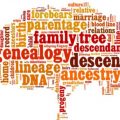Question
Dear Gramps,
Over the years in my family history research, I have submitted hundreds, if not thousands of names to the temple for proxy ordinance work. Yet through it all, I have never had any kind of a spiritual experience, or a dream, from anyone on the other side of the veil letting me know that the work has been accepted, or even appreciated. But I’ve read where other people have had such experiences. So I wonder. I continue to methodically submit names as I work through my family lines. But it would be nice to know that it has not all been in vain. Perhaps I am looking beyond the mark here? Your thoughts would be appreciated.
Robert
Answer
Dear Robert,
The sort of experience you seek is a sacred one that should be cherished and treasured privately unless the Spirit directs that it is to be shared. Both the event and the sharing of it occur frequently enough that it is not uncommon, but it is by no means universal. So it is with all spiritual gifts. “For all have not every gift given unto them; for there are many gifts [including a thinning of the veil], and to every man is given a gift by the Spirit of God.” (D&C 46:11). To help us better understand the gifts of the Spirit, Elder Oaks gave a talk in 1986. I’ve extracted the following principles from that talk, Spiritual Gifts, and subsequent quotes come from that address. I’ve included links to the scripture references for additional study.
- We should seek the gifts of the Spirit.
“[W]hen we have faith, repent, and are born of water and the Spirit, and when we love and serve God with all our hearts, we are eligible to receive spiritual gifts. We may then, as Paul taught, ‘covet earnestly [which means fervently desire] the best gifts.’ (1 Cor. 12:31; see also D&C 46:8.)” - Although we “covet earnestly the best gifts”, we are not guaranteed all the best gifts (nor even the one we seek) for they are dependent on us and the body of saints.
“The scriptures tell us that we should desire and zealously seek spiritual gifts. (See D&C 46:8; 1 Cor. 12:31; 1 Cor. 14:1, 11.) We are also told that some will receive one gift and some will receive another. (See D&C 46:11; 1 Cor. 12; Moro. 10:8–18.) In every case, the receipt of spiritual gifts is predicated upon faith, obedience, and personal righteousness. (See Bruce R. McConkie, A New Witness for the Articles of Faith, Salt Lake City: Deseret Book Co., 1985, p. 367.)” - These gifts are for building up the kingdom of God and not to consume on our lusts.
“We are commanded not to seek for signs to develop our faith (see Matt. 12:39; D&C 63:12), for ‘faith cometh not by signs’ (D&C 63:9). … When we believe and seek spiritual gifts to benefit others ‘and not for a sign’ (D&C 46:9), we are told that signs will follow.”
In addition to these principles, I add a few more from the scriptures.
- Gifts of the Spirit are distributed across the saints to build a well-functioning interdependence. Thus, it is expected that not everyone will receive manifestations of proxy ordinance acceptance. Note that while this chapter mentions church offices and callings, the focus is on spiritual gifts.
“But all these worketh that one and the selfsame Spirit, dividing to every man severally as he will. For as the body is one, and hath many members, and all the members of that one body, being many, are one body: so also is Christ. For by one Spirit are we all baptized into one body, … and have been all made to drink into one Spirit. For the body is not one member, but many. … But now hath God set the members every one of them in the body, as it hath pleased him. And if they were all one member, where were the body?” (1 Cor. 12:11-19). - Part of this interdependence includes the gift of knowledge paired with the gift of belief. It is a spiritual gift to recognize the truth of another’s testimony. Like Helaman’s young warriors, “we do not doubt [that others] knew it.” (Alma 56:48).
“To some it is given by the Holy Ghost to know that Jesus Christ is the Son of God, and that he was crucified for the sins of the world. To others it is given to believe on their words, that they also might have eternal life if they continue faithful.” (D&C 46:13-14) - While we “covet” gifts, we do not envy others. Returning to the body analogy, if “one member be honoured, all the members rejoice with it.” (1 Cor. 12:26). Unity is the name of the game and there is no room for that little green monster.
“[T]hose members of the body, which seem to be more feeble, are necessary: And those members of the body, which we think to be less honourable, upon these we bestow more abundant honour; and our uncomely parts have more abundant comeliness. For our comely parts have no need: but God hath tempered the body together, having given more abundant honour to that part which lacked: That there should be no schism in the body; but that the members should have the same care one for another.”
From what I can tell, the experience that you seek is a righteous one. So long as it is not sought vaingloriously you should be privileged to receive it (God willing). Until then, or if it never happens, rejoice with those who have received such experiences and see if “belie[f] on their words” is a gift you’ve been generously bestowed.
Gramps







